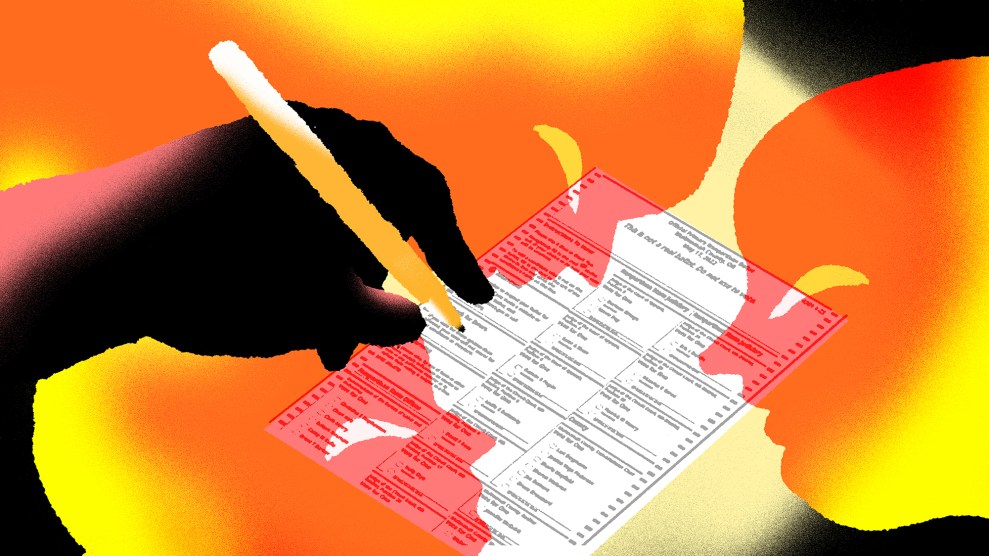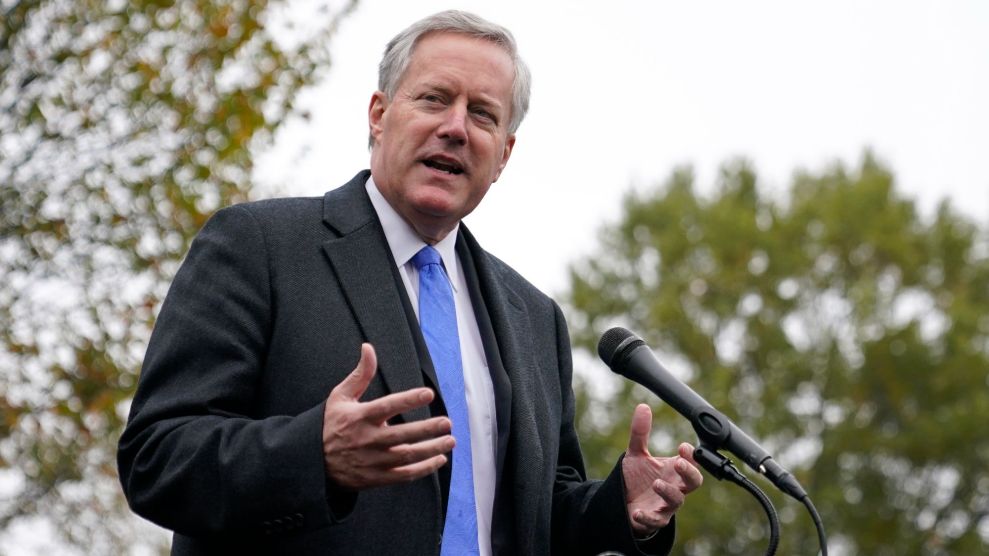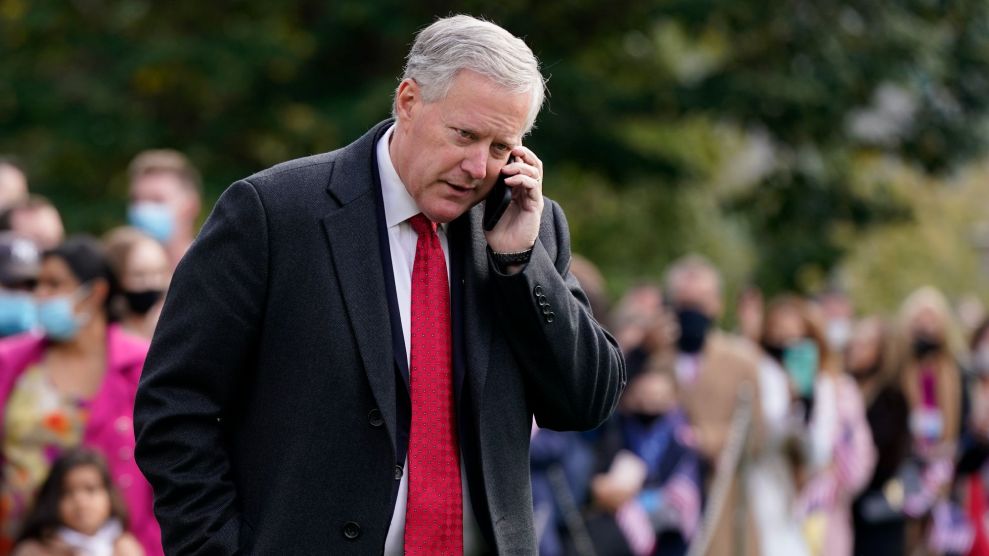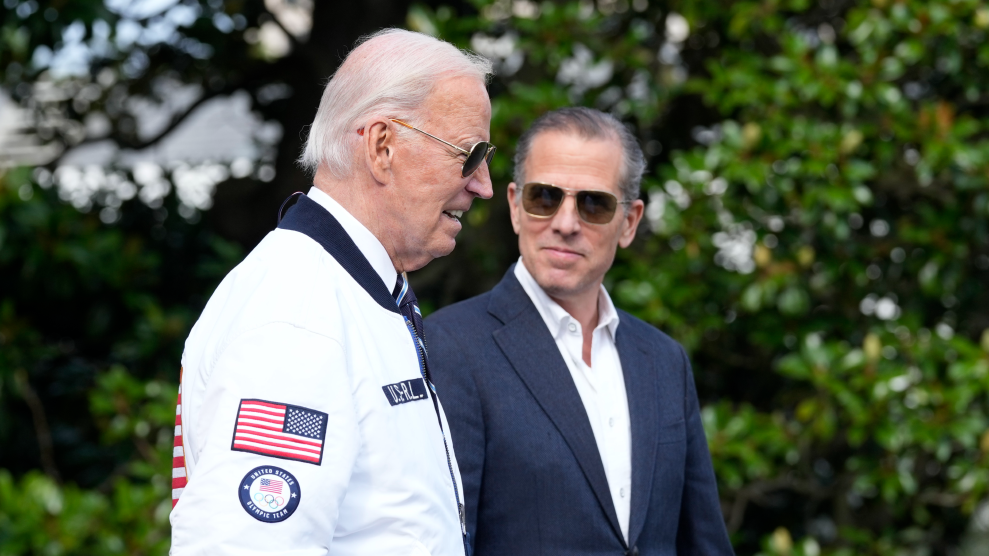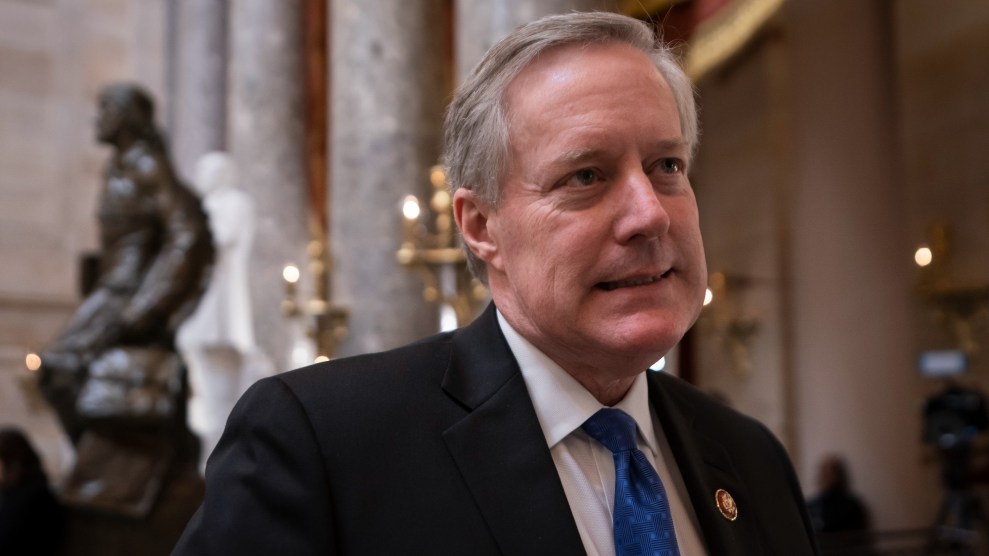
AP Photo/J. Scott Applewhite
On Wednesday, a South Carolina judge ordered Mark Meadows, the former chief of staff of Donald Trump who played a key role in his attempt to retain power after losing the 2020 election, to travel to Atlanta and testify in an investigation into election meddling being conducted by Atlanta-area prosecutors.
The former congressman is a potential key witness in the investigation into whether or not Trump and his allies attempted to influence Georgia’s results in the 2020 presidential election.
On January 2, 2021, Meadows was on a call with Trump and Georgia’s secretary of State, Brad Raffensperger, as Trump tried to pressure Raffensperger to “find” him more votes. Meadows also visited Cobb County, Georgia to watch an election audit—a move he called an attempt “to get to the truth.”
During the January 6 congressional hearings earlier this year, Meadows was implicated in numerous efforts to undermine the results of the 2020 election and keep Trump in power. During the last week of December 2020, Meadows sent five emails to then-Acting Attorney General Jeffery A. Rosen, pressuring him to investigate Trump’s baseless election fraud claims in New Mexico. One of the claims, as our reporter Ali Breland describes, was an “absurd and relatively obscure conspiracy that Italians had used satellites and other technology to remotely switch votes from Trump to Biden.”
According to the New York Times, Meadows’ lawyer, James Bannister, argued that the former chief of staff should be exempt from testifying due to “executive privilege,” a doctrine that sometimes allows executive branch officials to avoid sharing information with legislative bodies or the courts.
The ex-chief of staff’s legal team pulled a similar stunt with the January 6 committee at the end of last year. In December 2021, the committee moved to hold Meadows in contempt after he refused to hand over documents and testify about former president Donald Trump’s attempts to overthrow the election. As my colleague, Tim Murphy, wrote:
Meadows at first claimed that the doctrine of executive privilege barred him from cooperating with the committee. Then he reversed himself and agreed to be deposed. In the end, according to [Rep. Bennie] Thompson, Meadows provided some documents but withheld hundreds of others—and offered to answer investigators’ questions only in writing, rather than submit to an interview under oath.
The House Committee recommended criminal charges against Meadows. But the Department of Justice ultimately declined to charge him.
Bannister told the Associated Press that Meadows is “weighing all legal options” until they see a final order.

